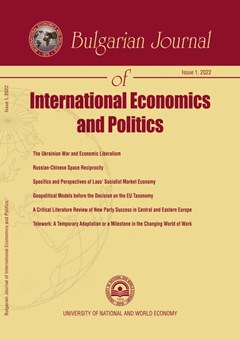Russian-Chinese Space Reciprocity
Author: Boris Manov
Abstract
The Cold War gave birth to two of the three most developed space programs today. As the Soviet communist ideology had to compete with the democratic USA, the USSR made incredible progress towards outer space and supported the initial growth of the first Chinese space technology. The two space programs have been intertwined since the first Sino-Soviet relations in the 1950s seeking to establish a balance of power and counter American ambitions for hegemony. The Russian and Chinese regimes have had an altering liaison from allies to opponents and consecutively partners in a struggle for power and influence within the space sector. Examining the two space programs allows the reader to comprehend the complex relations between two superpowers in a geopolitical struggle going beyond Earth’s boundaries. Using the problem-chronological and comparative method this article seeks to explore the intricate relationship between the Soviet Union/Russia and the People’s Republic of China, analysing the genesis of their relationship, differences, similarities and accomplished progress in the space sector until present day. The complex relationship formed between Russia and China in the last three decades has morphed into a close economic, military and space partnership, looking to counter current American space dominance and challenge the status quo. Space geopolitics is a relatively new field to the school of international relations and so far only a handful of political scientists have focused on activities conducted within the space environment, as crucial actions to the overall setting of the international scene. As our world continues its progress, space becomes an integral part of our daily lives, and any endeavors associated with space need to be considered, discussed and explained.
JEL: F50, F59

